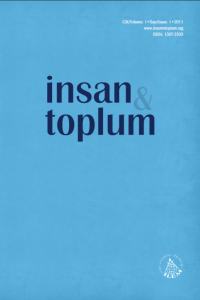Abstract
The cash waqfs debate of the mid-sixteenth century is indicative of a very critical phase in the development of the Ottoman legal tradition and scholarly establishment. By bringing the personal stories of the major figures to the fore, this article focuses on the social and political aspect of the debate rather than its intellectual content. As a public legal debate related to a critical social issue the cash waqfs discussion was more than simple scholarly exchange. Behind the points distinguishing different scholarly opinions lined there were sundry social and political groups that struggle for the control of resources. Occasionally personal issues between scholars used to surface in the form of an academic debate. And the outcome of the debate endowed the winning party more than a scholarly prestige. At such a critical juncture in the evolution of the Ottoman scholarly/legal establishment, the winners of this particular legal debate came to be very influential in the formation of the ilmiye. Finally, this debate marked an important turning point in the transformation of the Ottoman ulama from homo academicus to homo politicus.
Keywords
Ottoman Scholarly Establishment Networks Islamic Law and Finance Süleyman the Lawgiver Waqf Ebu’s Suud Çivizade Mehmed Muhyiddin Efendi
References
- Altunsu, A. (1972). Osmanlı şeyhülislamları. Ankara: Ayyıldız Matbaası.
- Çağatay, N. (1970). Riba and interest concept and banking in the Ottoman Empire. Studia Islamica, 32, 53-68.
- Çizakça, M. (1995). Cash waqfs of Bursa, 1555-1823. Journal of the Economic and Social History of the Orient, 38(3), 313-354.
- Düzdağ, M. E. (1983). Şeyhülislam Ebussuud Efendi fetvaları ışığında 16. asır Türk hayatı. Istanbul: Enderun Kitabevi.
- Fleischer, C. H. (1986). Bureaucrat and intellectual in the Ottoman Empire the historian Mustafa Ali (1541-1600). Princeton, N.J: Princeton University Press.
- Heyd, U. (1973). Studies in old Ottoman criminal law. Oxford: Clarendon Press.
- Imber, C. (1997). Ebus-Suud: The Islamic legal tradition. Stanford, Calif: Stanford University Press.
Abstract
References
- Altunsu, A. (1972). Osmanlı şeyhülislamları. Ankara: Ayyıldız Matbaası.
- Çağatay, N. (1970). Riba and interest concept and banking in the Ottoman Empire. Studia Islamica, 32, 53-68.
- Çizakça, M. (1995). Cash waqfs of Bursa, 1555-1823. Journal of the Economic and Social History of the Orient, 38(3), 313-354.
- Düzdağ, M. E. (1983). Şeyhülislam Ebussuud Efendi fetvaları ışığında 16. asır Türk hayatı. Istanbul: Enderun Kitabevi.
- Fleischer, C. H. (1986). Bureaucrat and intellectual in the Ottoman Empire the historian Mustafa Ali (1541-1600). Princeton, N.J: Princeton University Press.
- Heyd, U. (1973). Studies in old Ottoman criminal law. Oxford: Clarendon Press.
- Imber, C. (1997). Ebus-Suud: The Islamic legal tradition. Stanford, Calif: Stanford University Press.
Details
| Primary Language | English |
|---|---|
| Journal Section | Research Articles |
| Authors | |
| Publication Date | June 1, 2011 |
| Published in Issue | Year 2011 Volume: 1 Issue: 1 |

